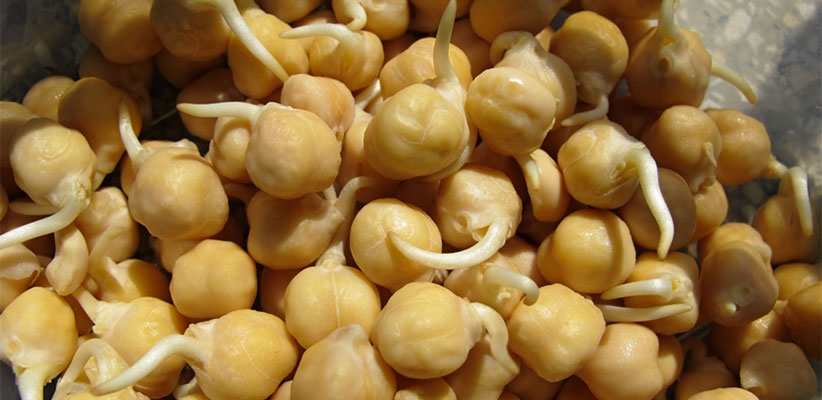
Chickpeas for time immemorial have been a famous diet of man. Tracing the origin of this delicacy could take us as far back as seven millennia ago, back to the Middle East. For the Spanish, chickpeas are a kitchen favorite known by the indigenous name of garbanzo beans while to the average Italian, chickpeas are the indispensable Ceci beans.
Cultivation of chickpeas started somewhere around 3000BC precisely in the Middle East. While being a cultural meal of that part of the world at that time, it was Spanish explorers that popularized chickpeas bringing it to the rest of the world with chickpeas eventually taking up a crucial position in Indian diets while also being a primary constituent of the food of the basic vegan.
Today, there are two main types of chickpeas. The first one is the desi while the second variety of chickpeas is the kabuli. Across the American continent, you are more likely to come across the Kabuli variety of chickpeas. The Kabuli type is big in size while desi are particularly smaller. But they both fall generally under the canopy of chickpeas as deep attention is not paid to the variety gaps.
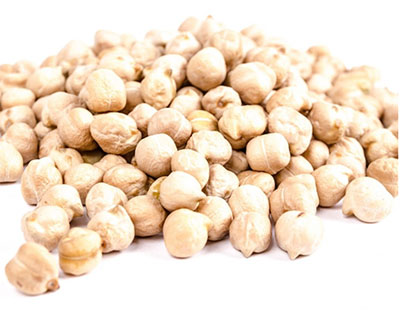 Remember we said two major types of chickpeas. Of course, there are other trivial kinds of chickpeas. Among this unpopular type, you have Bengal gram. This is more commonly known as the black chickpeas. Their ancestry drags from India. They have this peculiar rust coloration courtesy of the intense sun drying it has been subjected to. Quite in commonality with your regular chickpeas, they have the flavor of nuts and share close similarity with split peas (yellow). There is also green chickpea which is not much different from green peas, sharing close tenderness and freshness.
Remember we said two major types of chickpeas. Of course, there are other trivial kinds of chickpeas. Among this unpopular type, you have Bengal gram. This is more commonly known as the black chickpeas. Their ancestry drags from India. They have this peculiar rust coloration courtesy of the intense sun drying it has been subjected to. Quite in commonality with your regular chickpeas, they have the flavor of nuts and share close similarity with split peas (yellow). There is also green chickpea which is not much different from green peas, sharing close tenderness and freshness.
Chickpea flour is major components of Indian diets especially the Indian cuisine. Locally it is referred to as chana. Chickpea flour essentially finds use in cooking curries, as well as in toasting pancakes. For Italian meals, chickpea flour is massively used in the preparation of pasta.
Amidst the vast variety of chickpeas existent, the question that comes to mind readily is which chickpeas would be best for you. Well, there is no hard and fast rule that governs your choice of chickpeas. The common rule is that you should try and avoid broken chickpeas, older chickpeas also take more time to cook. For safety reasons, it would go well to rinse your canned chickpeas, essentially to separate it all from the sodium.
The health benefits of chickpeas are versatile. From the high protein combination it presents to the high fiber composition, chickpeas would essentially keep you full while helping you to watch your appetite.
This high fiber composition of chickpeas is very helpful in preventing your vulnerability to diabetes. Research has birthed findings that patients with type 1 diabetes who eat chickpeas (generally those who eat food with high fiber composition) tend to have much-reduced levels of blood glucose. Also for patients with type 2 diabetes, when they ate more of chickpeas, they enjoy rotund improvements in their blood sugar levels as well as their insulin levels.
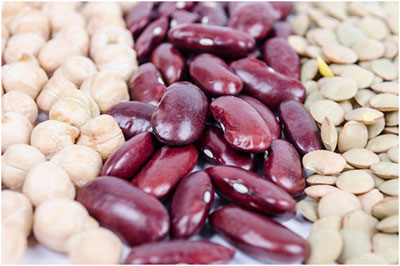 Standard dietary recommendations stipulate that you consume a minimum of 21 grams of fiber on a daily basis as a woman, while as a man, you should go with at least 30 grams. This endorses chickpeas as ready meals for this purpose pertaining to their high fiber composition.
Standard dietary recommendations stipulate that you consume a minimum of 21 grams of fiber on a daily basis as a woman, while as a man, you should go with at least 30 grams. This endorses chickpeas as ready meals for this purpose pertaining to their high fiber composition.
Aside from the fiber composition, chickpeas are very good for the health of your bones. Chickpeas contain powerful vitamins and minerals which play immense roles in the formidability of your bones. The likes of calcium, iron, zinc, Vitamin K as are combined in chickpeas ensures the reality of stronger bones while keeping them in good shape.
It is not just the fact that chickpeas crowds together a carless composition of minerals, it is the careful balance and proportion of composition that makes chickpeas spectacular. The well-formulated mineral composition as found in chickpeas goes as far as ensuring the maturity of collagen. Chickpeas will also help you drop down your blood pressure. The rich potassium composition of chickpeas is essential to this, particularly for its vasodilation function.
So far we have looked at chickpeas, the common type and how chickpea wholly helps us as to the health benefits. It therefore adequate wisdom for us to be inculcating more of chickpeas in our meals.

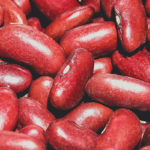
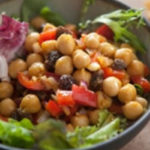
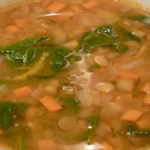
Comments are closed.